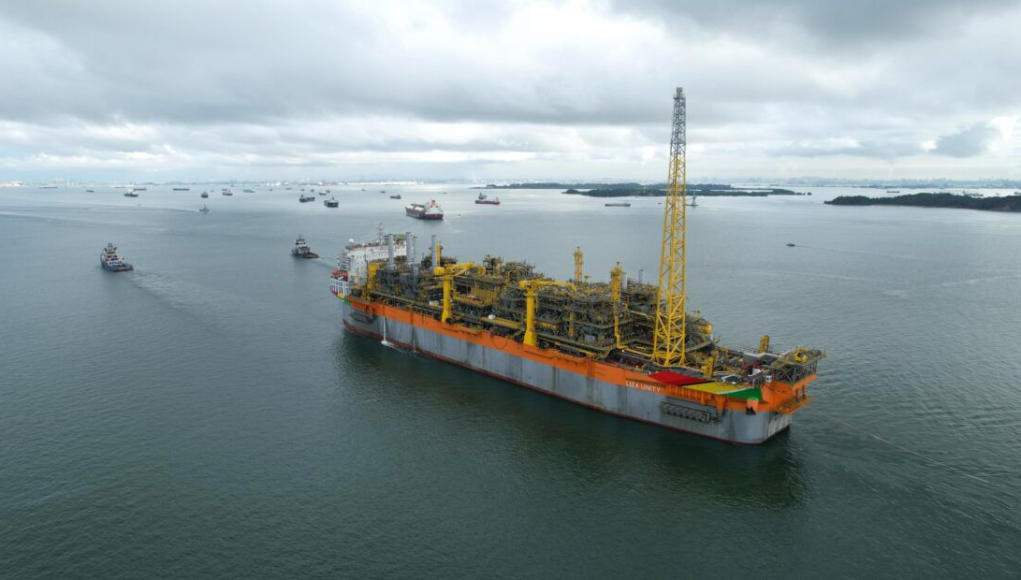ExxonMobil Guyana Limited’s (EMGL) President, Alistair Routledge, today disclosed that the company is looking to increase the production capacity of the Liza Unity – floating production, storage and offloading (FPSO) above 252,000 barrels per day (bpd).
During a press conference at the company’s Kingstown, Georgetown office, Routledge noted that the company is now awaiting permission before acting on its plan.
Reporters were told that the shutdown in July and August of the Liza Destiny and Liza Unity FPSOs to facilitate the installations of the gas risers for the Gas-to-Energy (GTE) pipeline to the vessels, allowed the company time to also complete maintenance tasks on the Liza Unity equipment.
“We also did some debottlenecking work on the Unity FPSO,” he added, noting that all of the work was successfully executed.
Notably, Routledge said that with both FPSOs back on stream producing at steady rates, the company anticipates that the month of September will prove to be a record production month.
On the production side, Routledge noted that the current authorised production capacity of the three FPSOs currently working in the Stabroek Block is 665,000 bpd. He said, for the Liza One (FPSO Destiny) it is authorised above 160,000 bpd but the current capacity is 157,000 bpd, while for Liza Two (FPSO Unity) and Payara (FPSO Prosperity) the authroised production capacity is 252,000 bpd.
According to Routledge, Exxon is involved in discussions with the Environmental Protection Agency (EPA), the Ministry of Natural Resources and other agencies in relation to increasing the production capacity of the FPSO Unity above 252,000 bpd.
He noted that the process is a methodical one which includes several reviews and other work. “All of that work was based upon analysis of the facilities, (and) risk assessments, then we go and execute the work in the field to make those technical adjustments, then we come back, we got all of that documented and we go back to the agency and say here is all of the analysis, here is the work we have done, all of the modelling and the risk assessments to say that it is safe to proceed,” Routledge added.
Exxon’s President stressed that the company would not increase the production until the relevant agencies are satisfied. He added, “We believe that we could potentially increase the Unity (production level) up to 270,000 bpd.”
Moreover, in relation to the FPSOs being offline, Routledge disclosed that production was shut down for about 12 days on each vessel. He further explained, “Really what happens in those sorts of instances the production is deferred is not that we lose the oil, it’s just that it will be produced later in the life of the asset…”













